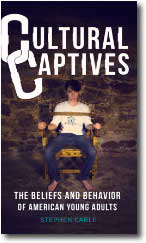The Southern Baptist Convention recently made headlines for renouncing racism, condemning slavery and apologizing for the church’s intolerant past. That laudable contrition raises a deeper question: Why would Christianity ever be associated with racial oppression in the first place?
How did the faith whose founder told people to “love one another” become linked with human bondage, social apartheid and even today’s racist militias?
As a white baby boomer growing up in the South, I experienced segregated schools, restrooms drinking fountains and beaches. My parents taught and modeled equality, so I was saddened by the injustice I saw. A CBS documentary emphasized the Ku Klux Klan’s use of the Bible and the cross in its rituals.
During college, a friend brought an African-American student to a church I attended in Durham, N. C. The next Sunday, the pastor announced that because of “last week’s racial incident” (the attendance of a Black), church leaders had voted to maintain their “longstanding policy of racial segregation.” Thereafter, any Blacks present would be handed a note explaining the policy and asked not to return. I was outraged and left the church.
Some 19th-century ministers preached that slavery was a divine decree. In his book, “Slavery Ordained of God,” Fred A. Ross wrote, “Slavery is ordained of God … to continue for the good of the slave, the good of the master, the good of the whole American family.” Those words seem quite different from the biblical injunction to “love your neighbor as yourself,” a statement with equally poignant historical roots.
In first-century Palestine, the Jews and Samaritans were locked in a blood feud. Divided by geography, religion and race, the two groups spewed venom, with Jewish pilgrims deliberately lengthening their journeys to bypass Samaria. Once, a Jewish lawyer asked Jesus of Nazareth, “Who is my neighbor?” Jesus, who as a Jew surprised people by freely mixing with Samaritans, told a now famous story: The Good Samaritan aided a badly injured Jewish traveler who had been ignored by two passers-by, Jewish religious leaders. Which of the three was the “neighbor”? Obviously, the one who showed mercy.
The power of true faith to reconcile enemies was driven home to me in the’70s by Norton, Georgia state leader of the Black Student Movement, and Bo, a prejudiced White church member. Once during an Atlanta civil rights demonstration, Bo and his pals assaulted Norton. The animosity was mutual. Norton later discovered that Christianity was not a religion of oppressive rules, but a relationship with God. As his faith sprouted and grew, his anger mellowed, while his desire for social justice deepened. Meanwhile, Bo chose to reject his hypocrisy and follow his faith. Three years after the beating, the two unexpectedly met again at a conference on the Georgia coast. Initial tension melted into friendship as they forgave, reconciled and treated each other like brothers.
Historical and contemporary examples abound of true faith promoting reconciliation and opposing racism. John Newton, an 18th-century British slave trader, renounced his old ways, became a pastor and wrote the hymn “Amazing Grace.” Newton encouraged his Christian friend William Wilberforce, who faced scorn and ridicule, in leading a long but successful battle in Parliament to abolish the slave trade.
In South Africa in 1988, my heart ached as I saw impoverished Black townships and inequality falsely justified by religion. I also saw signs of hope. At a multiracial university student conference, Peter, a white Afrikaner, told me, “All my life, I’ve been taught the races should be separate. But now because of my faith, I believe we can be one.”
Sadly, his efforts to convince his friends back home were frustrating. “Maybe, you can love the Black man,” they reluctantly conceded, “but you can’t associate with him.” Inner change often takes time and hinges on individual willingness.
Two years ago in Cape Town, radical Black terrorists sprayed a multiracial congregation with automatic gunfire and grenades. Eleven died and 53 were wounded, some horribly maimed. The world press was astounded by the members’ reaction.
Lorenzo Smith’s wife, Myrtle, died from shrapnel that pierced her heart as he tried to shield her. In spite of his loss, he forgave the killers: “I prayed for those that committed the crime.” The pastor explained, “Christian forgiveness doesn’t mean that we condone what has happened or that we don’t wish the law to take its course, but that we have no desire for vengeance. We’re more determined than ever to contribute toward reconciliation and a peaceful future.”
Former Vermont Sen. George Aiken said that if one morning we awoke to discover everyone was the same race, color and creed, we’d find another cause for prejudice by noon. Human hearts need changing.
A young African-American woman heard a speech on this theme in her sociology class at North Carolina State University. “All my life I’ve been taught that white Christians were responsible for the oppression of my people,” she noted. “Now, I realize those oppressors weren’t really following Christ.”
The Southern Baptists were right to renounce racism. Other institutions should take note. Racist policies, laws and yes–militias–need changing. But so do human beings. True Christianity does not promote racism but seeks to eliminate it by changing human hearts.
©1995 Rusty Wright. Used by permission. All rights reserved.
This article appeared in the San Bernadino [CA] Sun, July 30, 1995.










